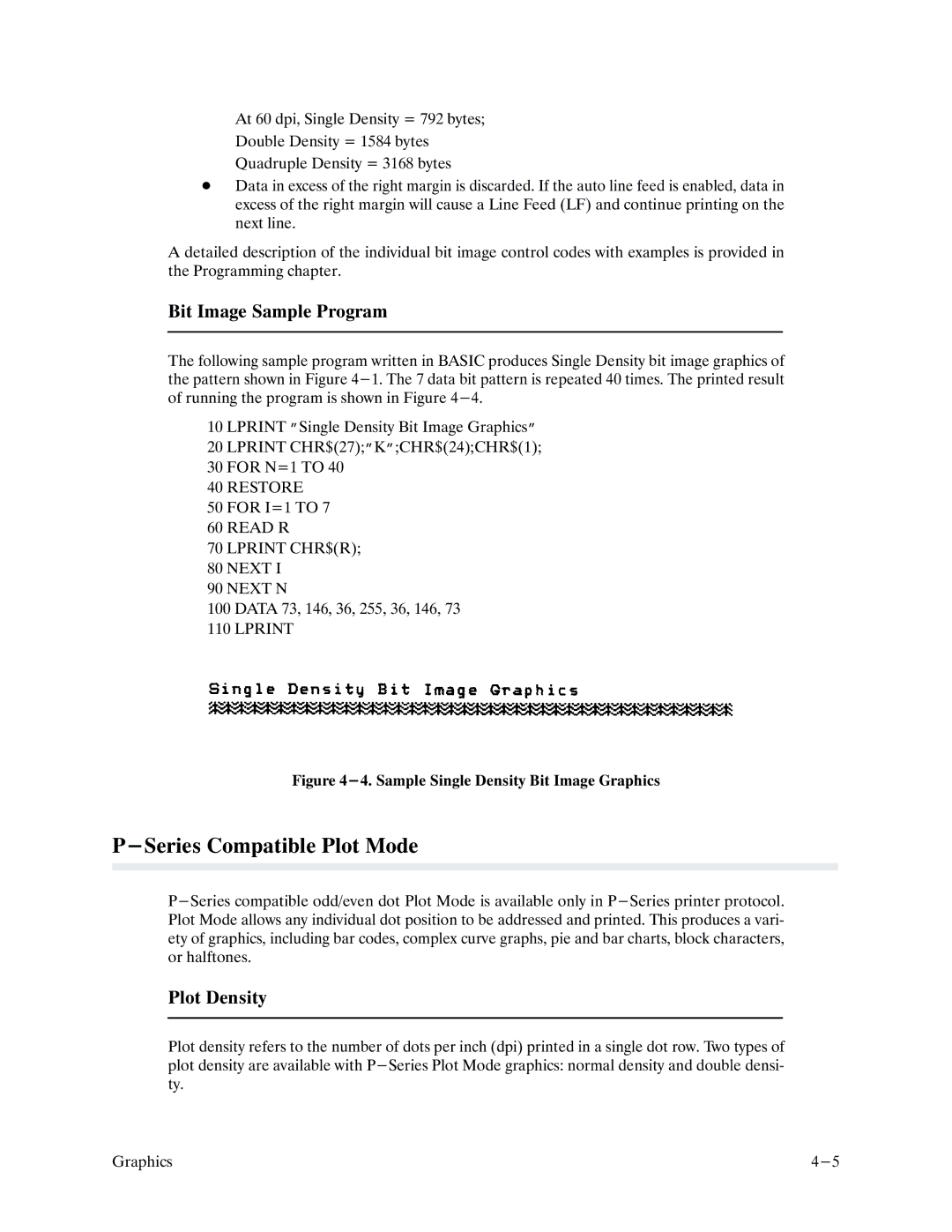
At 60 dpi, Single Density = 792 bytes;
Double Density = 1584 bytes
Quadruple Density = 3168 bytes
DData in excess of the right margin is discarded. If the auto line feed is enabled, data in excess of the right margin will cause a Line Feed (LF) and continue printing on the next line.
A detailed description of the individual bit image control codes with examples is provided in the Programming chapter.
Bit Image Sample Program
The following sample program written in BASIC produces Single Density bit image graphics of the pattern shown in Figure
10LPRINT ”Single Density Bit Image Graphics”
20LPRINT CHR$(27);”K”;CHR$(24);CHR$(1);
30FOR N=1 TO 40
40RESTORE
50FOR I=1 TO 7
60READ R
70LPRINT CHR$(R);
80NEXT I
90NEXT N
100DATA 73, 146, 36, 255, 36, 146, 73
110LPRINT
Figure 4-4. Sample Single Density Bit Image Graphics
P-Series Compatible Plot Mode
Plot Density
Plot density refers to the number of dots per inch (dpi) printed in a single dot row. Two types of plot density are available with
Graphics |
